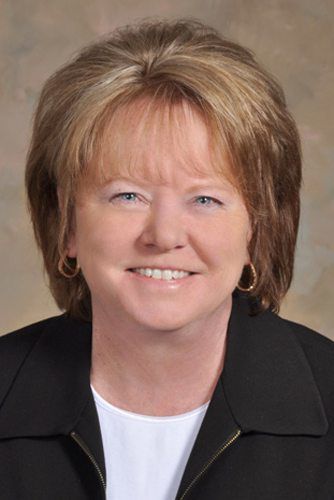During a time defined by health concerns and economic uncertainty, the local real estate market has proven resilient.
East Central Iowa Association of Realtors reported 615 home sales in the Dubuque area during the first six months of 2020, just below the 623 homes sold during that same stretch the previous year.
Area Realtors acknowledged they didn’t expect such a strong showing.
“Everybody is a little shocked by the numbers given so many unknowns with the economy,” said Ashley Erschen, president of the association. “Some people lost their jobs or got laid off, and many have faced financial stress due to (COVID-19). It is surprising to see the market is still so strong given all that stress.”
Representatives from the Northwestern Illinois Association of Realtors did not respond to a request for comment.
Realtors in southwest Wisconsin, meanwhile, observed a slight uptick in the market.
Deb Jenny, a broker with Platteville Realty, said 190 homes were sold in Grant County this year through the first week of July. That is up from 179 sold homes in the county during the same period of time one year ago.
Realtors attribute the success to multiple factors, including low interest rates, a decrease in spending elsewhere and a growing sense of comfort with the “new normal” in the industry.
‘NEW NORMAL’
Jeff Hefel, managing broker at Ruhl & Ruhl Realtors in Dubuque, acknowledged that the term “new normal” is probably overused today. But when it comes to the real estate market, it certainly applies.
In the early spring, as Americans adjusted to the new realities of the novel coronavirus, many were reluctant to dip their toes into the housing market.
“Everyone pushed pause for a while,” Hefel said. “Activity just stopped, and people waited until we had a plan as an industry.”
Over time, such plans started to emerge.
Realtors offered more remote options, including drone videos and virtual tours that allowed people to scope out homes without visiting them in person.
When an in-person visit was necessary, Realtors took precautions such as wearing facemasks and stocking up on hand sanitizer.
Jenny acknowledged that all of these extra measures take their toll on those in the industry.
“The sales numbers are pretty comparable, but it has been more work,” she said. “It takes longer to sell a home, and we’re working harder to do it.”
The hard work has paid off. Hefel believes homebuyers have warmed up to the market.
“We basically ended up having a delayed spring,” he said. “Instead of seeing that big increase in April and May, we are seeing it more in June and now July. I think we’re going to continue seeing that. The year is being pushed back a little bit.”
MOTIVATING FACTORS
Jenny, of Platteville Realty, said slowdowns in other parts of the economy might be encouraging some to put their money into real estate.
Decreased expenditures on things such as travel and dining have resulted in some people having more discretionary income. And with increased volatility in the stock market, many view real estate as a safe place to invest their money.
Low interest rates — which have dipped below 3% this year — have further fueled interest in the housing market.
“The rates are going to go up at some point,” said Erschen. “People know that, and they are pushing to get into a house when interest rates are still low.”
After numerous years of raving about low interest rates, Realtors acknowledge that they might sound like a broken record.
But Hefel emphasized that the prolonged run is bound to end at some point.
“I think when the big economic indicators consistently show that the economy is getting back on its feet, and once the election has happened, we could start to see those rates go up a bit,” he said.
Despite strong buyer interest, inventory remains an issue in the local market.
Erschen said homes priced between $150,000 and $250,000 are in particularly short supply.
“People are offering asking price and above, and you are seeing a lot of competing offers,” she said.
Low inventory has driven up the average sales price, which was nearly $211,000 in the Dubuque area through the first six months of 2020. The average price was a tick below $198,000 during the first half of 2019.


